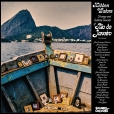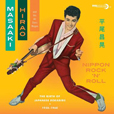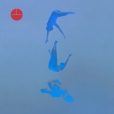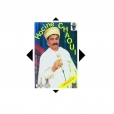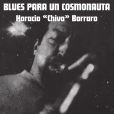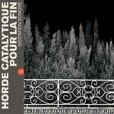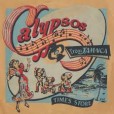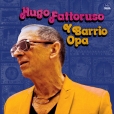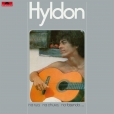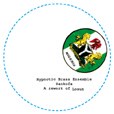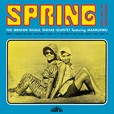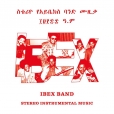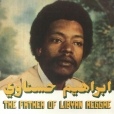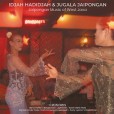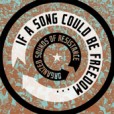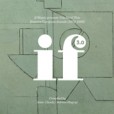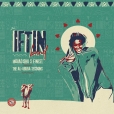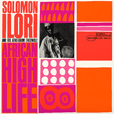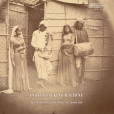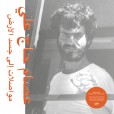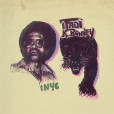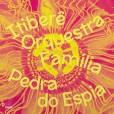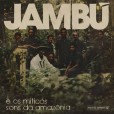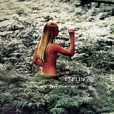Your basket is empty

‘Sublime, ethereal minimalism: the first drawing together of Onogawa’s soundtrack compositions, plotting a decade of music for films by cult filmmaker Gakuryū Ishii.
‘Sequenced into an album by Onogawa himself, this retrospective spans a fertile period of collaboration with Ishii, through soundtracks for three remarkable films — August in the
Water (1995), Labyrinth of Dreams (1997), and Mirrored Mind (2005) — where the cinema is texturally and sensually imbued with the spiritual, ambient, dreamlike quality of Onogawa’s music.
‘The sound Onogawa conjures for these films is elegant and patient, often spare or essential in form, but saturated in a strange and otherworldly, poetic emotion and atmosphere. Boundaries are crossed between New Age and science fiction, passing through blissfulness, melancholy, and paranoia, towards enchantments of mood and colour.
‘It’s notable that the compositions on this album straddle the millennium, with a fitting mix of divine and uncertain themes. New listeners might hear links to Mark Snow’s work for the X-Files and Millennium, or the soundtracks of certain future-facing and future-fearing Japanese anime or cyberpunk.
‘Onogawa’s music adds great depth and tenor to the sensory experience of the films themselves, but it stands just as strongly as a listening experience on its own terms; a virtuosic example of Ambient that changes in hue when turned in the light. Remarkably, like Ishii’s films, Onogawa’s work has never been widely available outside of fervid underground fan posts, usually sourced from extremely limited and private CDs limited to Japan.
‘This retrospective seeks to remedy that, presenting Onogawa as one of the great composers of the last three decades.’
Electrifyingly intense Chaoui music from the Aurès region of Algeria, booted into the future, with drum machines, phased gesba flute and reverbed-out vocals.
The French avant-garde quartet, four years in, improvising with instruments from Western, African, Middle-Eastern, and Far-Eastern cultures. Recorded for Futura in 1971, this is their sole album. “We just wanted the sound, the raw sound-texture, before being treated and shaped by any cultural code.”
Irresistible 1950s mento — singalong tunes, ebulliently performed, over-spilling with scandal, smut and impudence, sex, dancing and booze, word-play, jokes and up-to-the minute social commentary, and general love for life.
A landmark blend of MPB, soul, and funk, from 1975.
The landmark 1968 debut recording of pianist Ibrahim Khalil Shihab, aged twenty-two; also featuring terrific young saxophonist Winston ‘Mankunku’ Ngozi, Coltrane acolyte, on the verge of huge acclaim for his LP Yakhal’ Inkomo.
Scandalously, Paypal blocks anyone trying to buy this from us, because of the artist’s Arabic name.
‘The beating heart of the golden age of Ethiopian music, the Ibex Band was the driving force behind such stars as Aster Aweke, Tilahun Gessesse, Girma Beyene, and Mahmoud Ahmed. Led by bassist Giovanni Rico and guitarist Selam Seyoum, Ibex relentlessly reshaped Ethiopian music, blending traditional 6/8 rhythms with Western influences like Motown, and knocking out more than 250 albums, 2,500 songs.
‘Stereo Instrumental Music is a rare gem from this era, recorded in 1976 at the Ras Hotel Ballroom in Addis Ababa.’
‘Mind-melting West Javanese gong pop, recorded in 2007 at Jugala studios in Bandung, based on a Javanese secular village music and dance tradition known as ketuk-tila, which was transformed into a popular studio music in the early 1960s by the producer Gugum Gumbira, founder of Jugala. With vocals by Idjah Hadidjah, one of the key historic voices of jaipongan, the situation here is disorientatingly heavy, low bpm gong pressure coming straight from the originators. It is a much less dainty affair than classical Javanese gamelan, and less febrile than the fully automatic Balinese variant. Hadidjah’s golden voice sews together shifting polyrhythms that would baffle a watchmaker; the whole is embroidered by rehab and underpinned by Mariana Trench level bass drops. A second disc features a set of thoughtful electronic reworkings’ (Frances Gooding, The Wire).
Six tracks spanning infectious Polish disco (Karolak and Korzyński), bustling break-heavy jazz from the Polski Jazz Ensemble and Russki Yahilevich, heartwarming spiritual jazz from Hungary’s Binder Quintet (featuring John Tchicai)... and Alojz Bouda’s oddball Slovakian synth banger, Random.
Rawly funky blends of Banaadiri rhythms from southern Somalia with influences from Asia, the Middle East, and Africa — nuff Ethiopiques — featuring stinging Dhaanto guitar licks and hot brass, fronted by Mogadishu’s finest vocalists.
Drawn from cassettes recorded between 1982 and 1987 in the secret studio of the Al-Uruba hotel, and live sessions in the basement of the national theatre.
Recorded in exile in Paris, this is the eye-opening solo debut of the leader of the legendary Lebanese group Ferkat Al Ard.
In 1977 Issam was scratching together a living by busking on the Metro. He could afford just one day in the studio, with a pick-up band of musicians from France, Algeria, Iran — and a friend from Beirut called Roger Fahr, who had left Lebanon around the same time.
Back in Beirut by the end of the year, Issam added percussion and other touches. He made no more than one hundred cassettes, with his last, personal copy providing the master for this precious reissue.
In these genre-shattering settings of the Palestinian poet Samih El Kasemou you can hear the roots of Ferkat Al Ard — but “it’s more of just me,” avers Issam.
Melancholic, stripped, acoustic folk crossed with cosmic, funky jazz-fusion, with strong Brazilian influences. It’s packed with breaks, and haunted by the unique sound of the santour.
The genre-slaying, polyharmonic, polyrhythmic ‘universal music’ of Hermeto Pascoal and his bassist Itibere Zwarg, performed in 2001 by a workshop comprising twenty-nine of Rio de Janeiro’s most exceptional young musicians.
An overlooked masterpiece amongst recent Brazilian recordings: invigorating and marvellous; warmly recommended.
‘The city of Belém, in the Northern state of Para in Brazil, has long been a hotbed of culture and musical innovation. Enveloped by the mystical wonder of the Amazonian forest and overlooking the vastness of the Atlantic Ocean, its Amerindians, Europeans and Africans pioneered musical genres such as Carimbó, Samba-De-Cacete, Siriá, Bois-Bumbás and bambiá.
‘There was a radio station, a recording studio, a music label and a deep, cross-genre roster of artists. Beginning as simple gramophones connected to loudspeakers tied to lamp posts or trees, the aparelhagem sonora of Belém evolved into sophisticated setups, drawing thousands of revelers.
‘The music and tales found in Jambu are stories of resilience, triumph against all odds, and, most importantly, of a city at the edge of the Amazon which has always known how to throw a damn good party.’
‘The area’s best club music from the mid-‘70s, an exuberant, carnival-esque mishmash of local carimbó and siriá styles with big-band brass and frenetic Afro-Latino percussion. Best of all there are the three hip-swivelling cuts by Pinduca, founding father of lambada and king of Carimbó’ (Q).
The legendary Library album by Sandro Brugnolini and Stefano Torossi, undercover in 1975 for contractual reasons.
Bad-ass headz vibes — madly sampledelic, super-funky, jazzy and widescreen — with the genies of Herbie, Barry White, Isaac Hayes and the Mizells, all in the mix.

